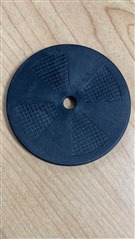Other Parts Discussed in Thread: TRF7970A, TRF7964A
Hi Team,
I have a board built up with TRF7970A. For my next project, TRF7962A is preferred and need to do evaluation.
Does TRF7962A could be drop in replacement for TRF7970A? If yes, I can short my design cycle.
Could you share the HW or SW changes or risk for the replacement?
Best Regards,
Tess Chen


